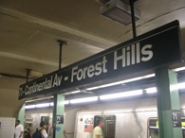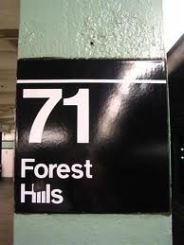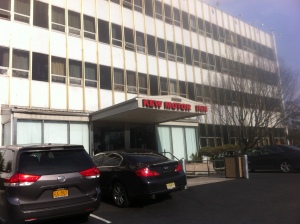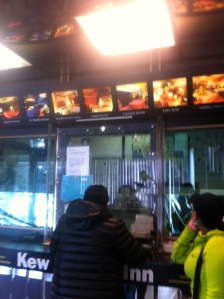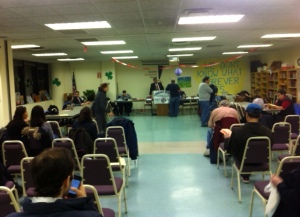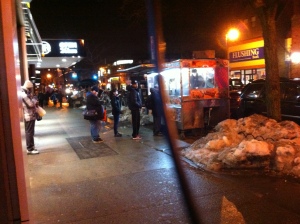Beneath the streets of Forest Hills and within the 71st Street and Continental Avenue subway station, there is a growing concern among subway riders. Over the last few months, there has been an influx of homeless people living in the train station and some passengers find it unsettling and unsafe.
With an increase of drifters coming to the station and making their homes there, many residents feel unnerved and say the MTA has let them down in terms of safety.
“I don’t feel safe and protected anymore when I’m down there,” says Anisa Hudar, who has lived in Forest Hills for 18 years. “At first, it was common to see a few but now, there’s just too many homeless people to feel safe.”
Others share her sentiments.
“As a woman who comes home late from work, I don’t feel safe at all when I’m at the station,” says Sofia Aleyevskaya, who has lived in Forest Hills for six years. “Some of the homeless guys catcall and follow me until I leave the station. I hate it.”
It’s not just the nighttime in which the homeless start to feel like a problem. Some feel the worst time is the afternoon and such is the case in Mariah Estreta’s opinion. Estreta, a mother of two and resident of Forest Hills for eight years, fears for her children’s safety when they return from school in the afternoon.
“As a mother, I just have to fear for my children. I don’t know what some of the homeless are capable of and I don’t want my children to be exposed to any sort of danger,” says Estreta. To ease her mind, Estreta now travels to her children’s elementary school, which is located in Kew Gardens, and brings them back herself.
Shamsul Rahman, a resident of Forest Hills for five years, believes that the neighborhood has taken a turn for the worse, and the issues at the train station only highlight some problems. “Just in general, the streets and the station feel dangerous now,” says Rahman. “There is also a lack of police at night which doesn’t help the situation.”
Rahman stresses the need for more police officers spread throughout the area at all times of the day so that the streets and subway station can revert back to feeling like “smooth sailing.”
“We all know that some of the homeless people have mental issues and they may be insane which is a danger for us riders,” says Rahman.
The train station at 71st Street and Continental Avenue isn’t the only station suffering from an influx of homeless people. Nearby, the 67th Avenue train station on Queens Boulevard is beginning to experience the same issue and during rush hour, the problem is visible for everyone to see.
“It feels like a shantytown and it smells awful in here,” says Joseph Webber, who waits for the M train everyday at the 67th Avenue station. “If this keeps being a problem, I might just start looking for alternative routes to work.”
Though the issues haven’t been solved, it doesn’t mean they haven’t been addressed. At the monthly police community council meeting held at the 112th Precinct, Captain Thomas Conforti said that there would be an increase in police presence to insure citizens feel safe again riding the trains in their own neighborhood. Conforti says that with more officers, the 112th Precinct will be able to assess and evaluate the danger in the stations.
However, some doubt the plan Captain Conforti has come up with. Joseph Webber, who was present at the community council, says that the police can’t seem to see the real problem; that homeless people consistently flock into the local train stations. Just last month, a homeless man stabbed a passenger at the Kew Gardens-Union Turnpike train station, which is one stop away from the 71st Street and Continental Avenue Station.
Although most people in Forest Hills want police to clear the stations of all drifters and homeless people, one man who has lived in the 71st Street and Continental Avenue station for three years brings up a different issue. Ang Phan, who sleeps every night on the wooden benches at the station and cleans up garbage even though he doesn’t have to, treating the station like his own home, asks, “Where should someone like me go in New York?”

